
Bonanjo: The Historic Heart of Douala
Bonanjo, often regarded as the historic heart of Douala, is a vibrant neighborhood that offers a perfect blend of colonial heritage and modern-day charm. As you stroll through its tree-lined streets, you'll encounter a series of colonial-era buildings that speak volumes about the city's storied past. These architectural gems, some of which have been converted into museums and cultural centers, provide a unique glimpse into Douala's journey through time. The neighborhood is also home to several important landmarks, including the Douala Maritime Museum and the striking Cathedral of Saints Peter and Paul. These attractions not only offer insightful exhibits but also serve as peaceful retreats from the bustling city life. The Maritime Museum, in particular, is a must-visit for anyone interested in the history of maritime trade in the region. Bonanjo's central location makes it an ideal base for exploring the rest of Douala. The neighborhood is well-connected by public transport, and its proximity to the city’s commercial district means you’re never far from the action. Whether you're interested in shopping, dining, or simply soaking up the local atmosphere, Bonanjo has something for everyone.
Local tips in Bonanjo
- Visit the Douala Maritime Museum early in the day to avoid crowds.
- Wear comfortable shoes as the best way to explore Bonanjo is on foot.
- Carry a bottle of water, especially if you’re visiting during the hotter months.
- If you're interested in history, don't miss the guided tours at the Cathedral of Saints Peter and Paul.
Bonanjo: The Historic Heart of Douala
Bonanjo, often regarded as the historic heart of Douala, is a vibrant neighborhood that offers a perfect blend of colonial heritage and modern-day charm. As you stroll through its tree-lined streets, you'll encounter a series of colonial-era buildings that speak volumes about the city's storied past. These architectural gems, some of which have been converted into museums and cultural centers, provide a unique glimpse into Douala's journey through time. The neighborhood is also home to several important landmarks, including the Douala Maritime Museum and the striking Cathedral of Saints Peter and Paul. These attractions not only offer insightful exhibits but also serve as peaceful retreats from the bustling city life. The Maritime Museum, in particular, is a must-visit for anyone interested in the history of maritime trade in the region. Bonanjo's central location makes it an ideal base for exploring the rest of Douala. The neighborhood is well-connected by public transport, and its proximity to the city’s commercial district means you’re never far from the action. Whether you're interested in shopping, dining, or simply soaking up the local atmosphere, Bonanjo has something for everyone.
Iconic landmarks you can’t miss
Parc Bonanjo
Escape the city bustle in Douala's green heart: Parc Bonanjo, a serene retreat for locals and tourists alike.
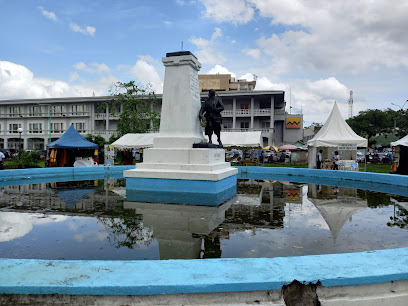
Maritime Museum Of Douala
Explore Cameroon's maritime past at the Douala Maritime Museum: artifacts, exhibits, and stories of the sea await!
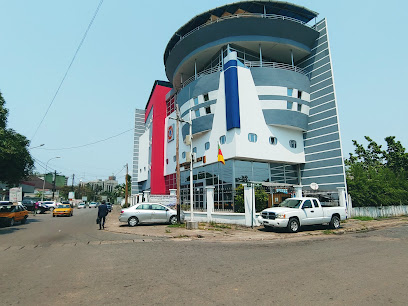
Doual'art
Explore contemporary African art and urban culture at Doual'art, a dynamic center promoting local talent and international dialogue in Douala, Cameroon.
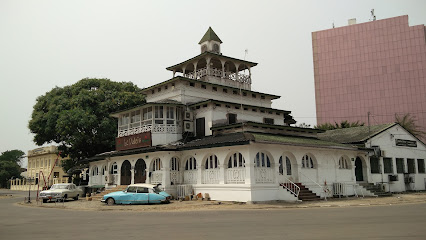
La Nouvelle Liberté
Discover La Nouvelle Liberté in Douala: a towering symbol of freedom, resilience, and the city's vibrant culture, crafted from recycled materials.
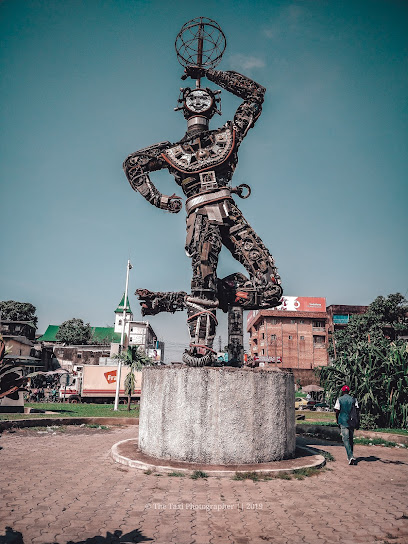
La Pagode
Discover La Pagode in Douala: a unique blend of colonial history and architectural beauty in the heart of Cameroon's economic capital.
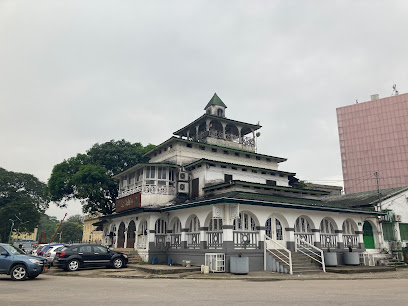
Ancienne Residence du Chef de Circonscription
Step back in time at this historical landmark in Douala, showcasing French colonial architecture and a rich administrative past.
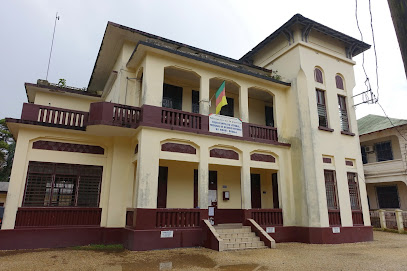
Place Du Gouvernement
Discover Place du Gouvernement in Douala: a vibrant hub of history, culture, and political significance in the heart of Cameroon's economic capital.
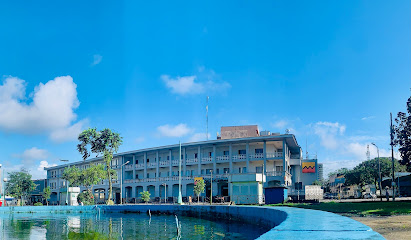
Monument Nachtigal
Explore Monument Nachtigal in Douala, Cameroon, a historical landmark honoring German explorer Gustav Nachtigal and the region's colonial past.
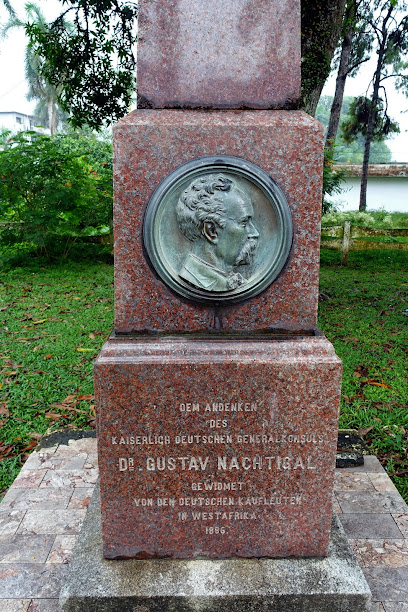
Ancien Siège de la Woermann Linie
Explore Douala's maritime past at the Ancien Siège de la Woermann Linie, a historical landmark reflecting the city's colonial heritage.
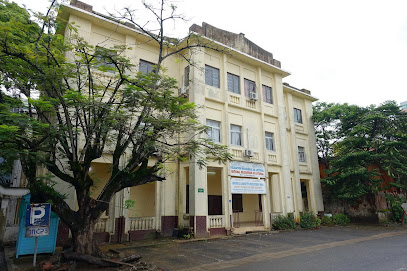
Obélisque Bonanjo
Discover the iconic Obélisque Bonanjo in Douala, a symbol of the city's cultural heritage and a window into its vibrant history.

Unmissable attractions to see
Cathedral of St Peter and Paul Bonadibong
Explore the architectural beauty and spiritual significance of the Cathedral of St Peter and Paul Bonadibong in Douala, Cameroon.
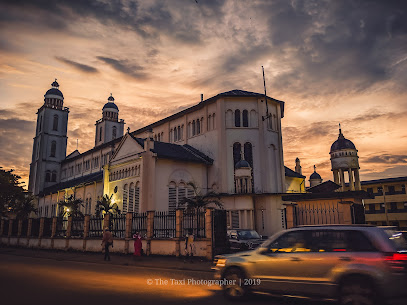
Parc Bonanjo
Discover Parc Bonanjo, Douala's serene park offering a peaceful escape with lush greenery and a vibrant atmosphere perfect for relaxation and socializing.
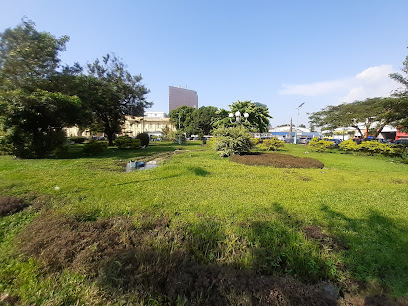
Point de Vue Base Navale
Experience breathtaking views at Point de Vue Base Navale, a serene escape in Douala showcasing the beauty of Cameroon’s coastline.
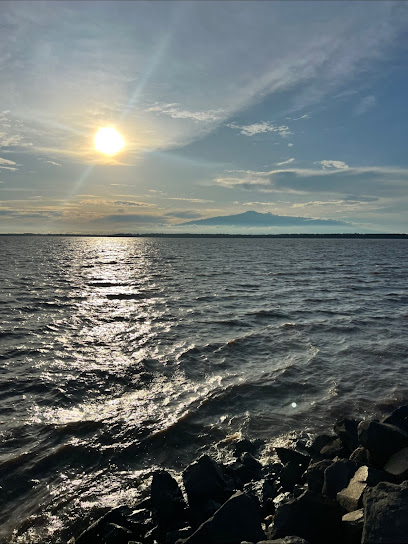
Deck
Discover the serene beauty of Deck, a stunning garden in Douala that offers a peaceful escape amidst vibrant city life and lush greenery.

ابراهيم حسين
Discover the vibrant heart of Douala at Ibrahim Hussein, where culture, cuisine, and community come together for an unforgettable experience.

Rond point place de fête Bonanjo
Explore the tranquil beauty of Rond Point Place de Fête Bonanjo in Douala, a perfect escape for relaxation amidst lush greenery and vibrant culture.

Essential places to dine
Le Boj, Douala
Discover Le Boj: Douala's premier restaurant and lounge blending local flavors with international flair for an unforgettable dining experience.
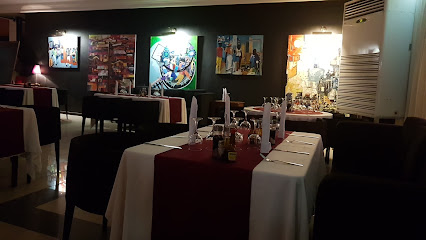
Restaurant Sénégalais Chez Kadidja, Douala
Experience authentic Senegalese cuisine in Douala at Restaurant Sénégalais Chez Kadidja - where every dish tells a story.
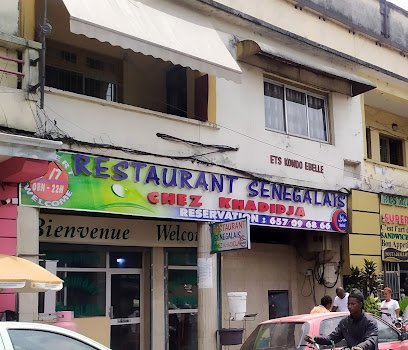
Restaurant LA PAUSE
Discover the flavors of Cameroon at Restaurant LA PAUSE – where local meets international in an inviting atmosphere.
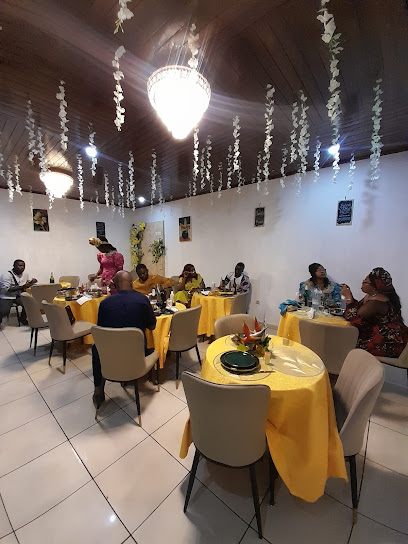
Restaurant LA RUCHE
Discover authentic Cameroonian flavors at Restaurant LA RUCHE in Douala - a culinary haven where every meal tells a story.
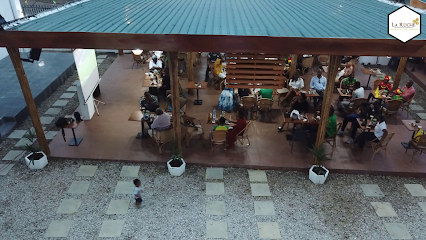
LES TONTONS AFRO DOUALA
Discover the vibrant flavors of Africa at Les Tontons Afro Douala—an unforgettable dining experience within ONOMO Hotel.
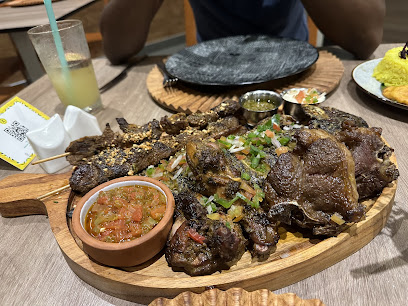
City.KO Restaurant
Discover authentic Cameroonian flavors at City.KO Restaurant in Douala - where local ingredients meet culinary artistry.
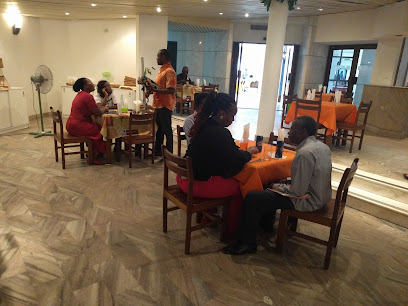
GRILLADIN ( CUISINE CAMEROUNAISE)
Experience authentic Cameroonian cuisine at Grilladin in Douala - a must-visit restaurant for flavor enthusiasts.
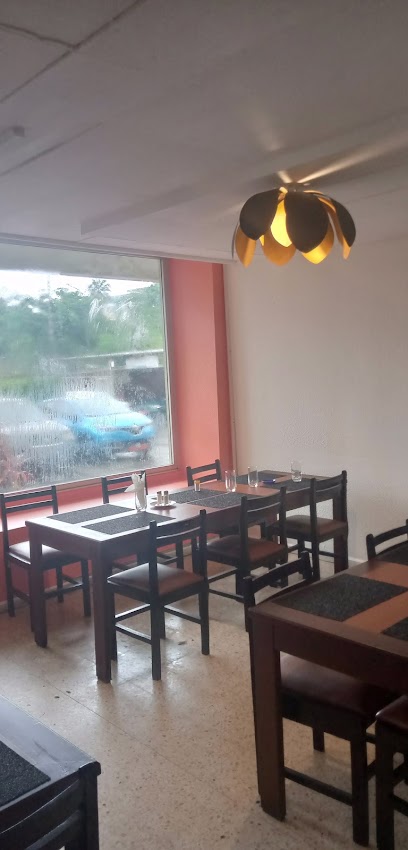
Restaurant Continental
Experience authentic Cameroonian cuisine at Restaurant Continental in Douala's Bonanjo district - where every dish tells a story.
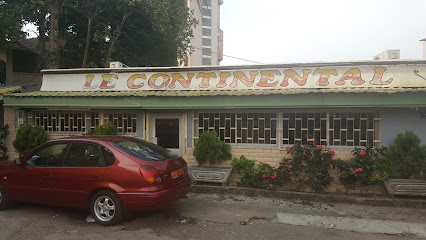
La Formule Provencale
Experience authentic Provençal cuisine at La Formule Provencale in Douala - where every meal is a celebration of flavor.
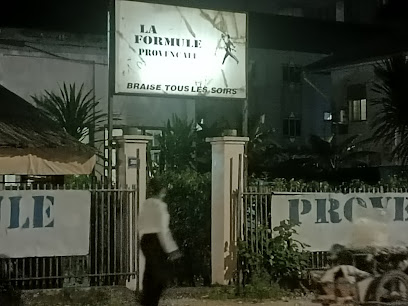
A taste of the motherland at RESTAURANT LA PAUSE
Experience authentic African flavors at Restaurant La Pause in Douala – where every dish tells a story of culture and tradition.
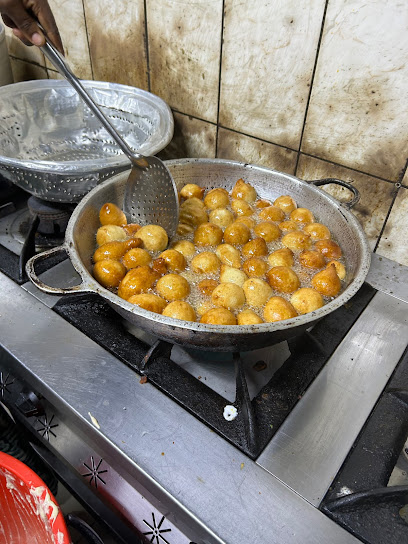
Markets, malls and hidden boutiques
African Soul Market
Discover unique gifts and gourmet delights at the African Soul Market, a vibrant showcase of Cameroon's rich culture and craftsmanship.
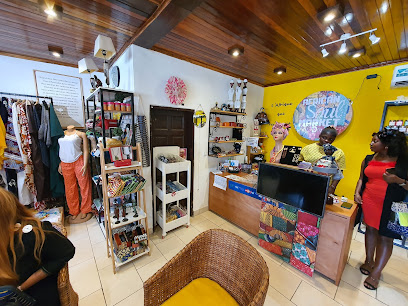
Cousin be Unique
Discover unique fashion at Cousin be Unique in Douala, where local style meets contemporary trends in a vibrant shopping experience.

Souvenir Cameroon
Explore Souvenir Cameroon for unique handcrafted gifts and authentic local art, embodying the rich cultural heritage of Douala.
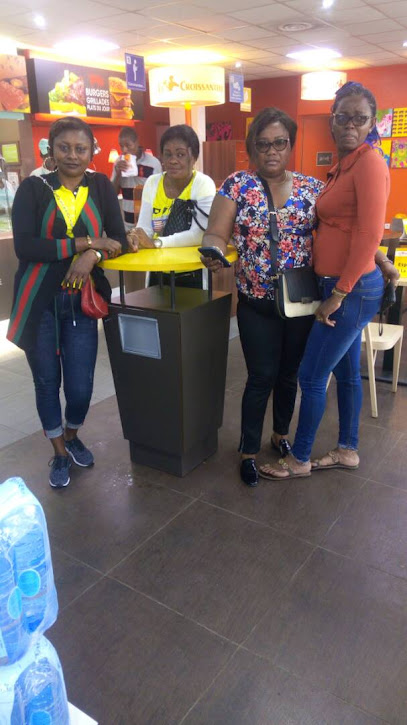
ZIDANE Shop
Explore ZIDANE Shop in Douala for an unforgettable shopping experience filled with local culture, international brands, and culinary delights.

Boutique Orange BONANJO
Discover the latest mobile technology and exceptional service at Boutique Orange BONANJO in Douala, your hub for connectivity in Cameroon.
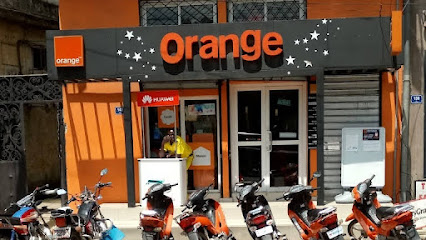
Mael Daniel shopping
Explore Mael Daniel Shopping in Douala for a unique blend of local fashion and trendy styles in a vibrant atmosphere.
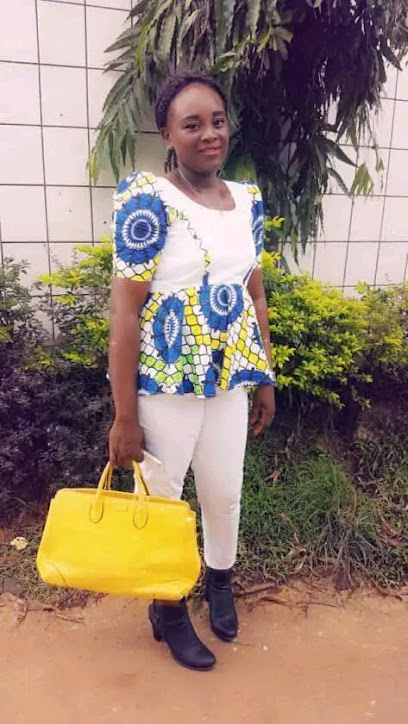
My Gifted Box
Explore My Gifted Box in Douala for unique souvenirs and local crafts that capture the essence of Cameroon.
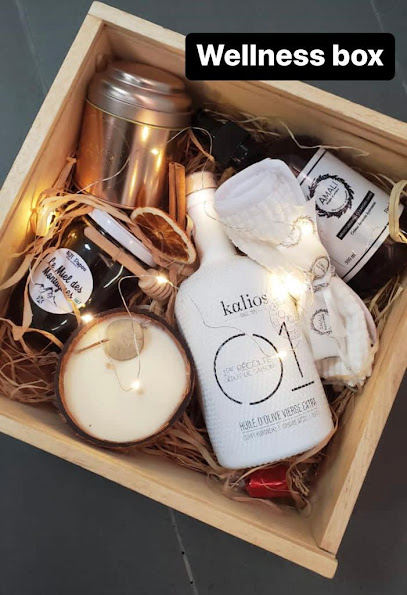
Boutique Orange BONANJO ATRIUM
Discover the latest mobile technology at Boutique Orange Bonanjo Atrium, a premier cell phone store in Douala's vibrant shopping scene.
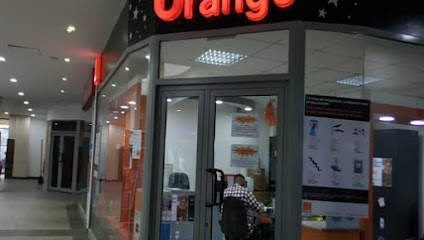
OMBROSIA BOUTIQUE
Discover unique fashion accessories at Ombrosia Boutique, a gem in Douala that blends local artistry with modern flair.
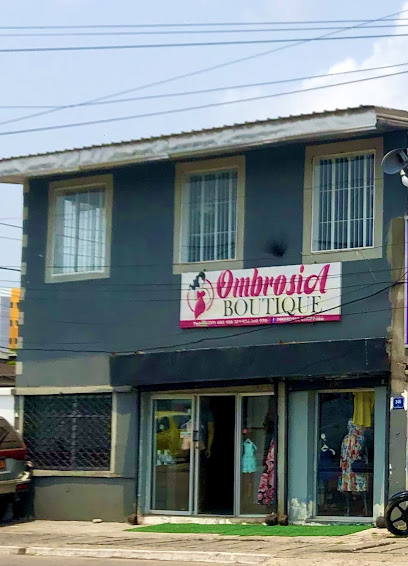
Petite boutique
Explore the charm of Petite Boutique in Douala, a gift shop offering unique local crafts and souvenirs that reflect the rich culture of Cameroon.

Essential bars & hidden hideouts
Black&White Douala
Discover the heart of Douala's nightlife at Black&White, a premier lounge offering delicious dining, thrilling DJ sets, and engaging pool games.
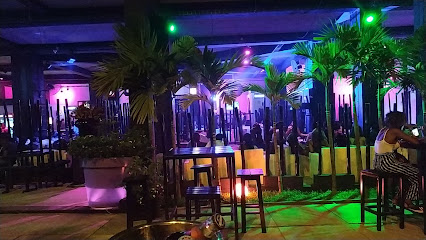
Le Boj, Douala
Experience the vibrant flavors of Douala at Le Boj, where exquisite cuisine and an extensive wine selection await.
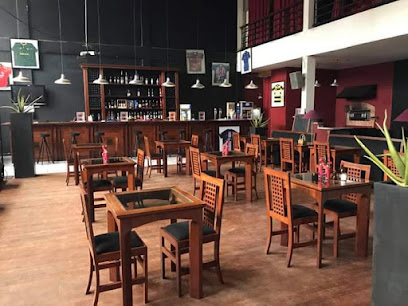
The Grey
Discover the lively atmosphere of The Grey Lounge in Douala, where relaxation meets entertainment in a stylish setting.
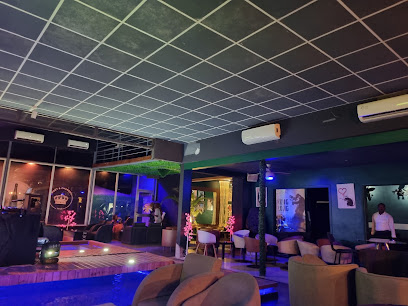
Le Palais
Le Palais in Douala offers a vibrant pub experience with local drinks, live music, and a lively atmosphere perfect for travelers seeking authentic cultural moments.
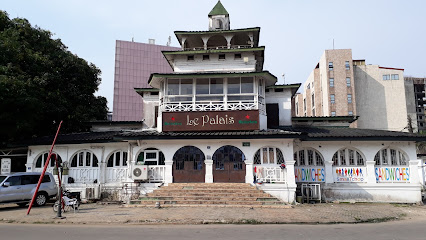
OPIOM Lounge Bali
Discover the vibrant nightlife of Douala at OPIOM Lounge Bali, where lively music and a warm atmosphere await every visitor.
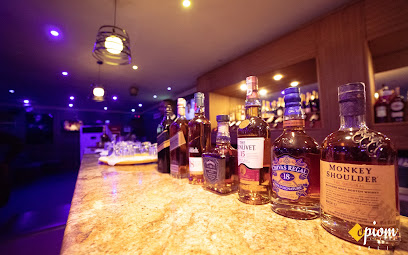
SKY BAR
Experience breathtaking views and delicious grilled delicacies at Sky Bar, Douala's premier dining destination.
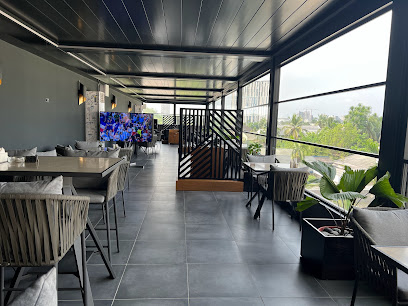
Les Delices De La Garnison
Experience Douala's vibrant nightlife at Les Delices De La Garnison, where great drinks and a lively atmosphere meet.
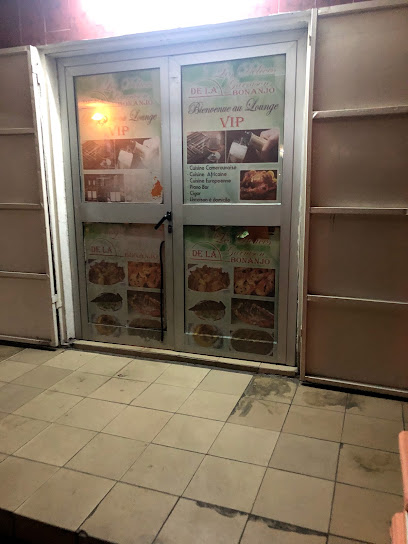
Carrefour 6morts Akwa
Discover the vibrant nightlife at Carrefour 6morts Akwa, a bar in Douala offering great drinks and a lively atmosphere for tourists.

The Kitchen
Discover the vibrant flavors of Douala at The Kitchen, a premier gastropub blending local cuisine with modern culinary flair for an unforgettable dining experience.
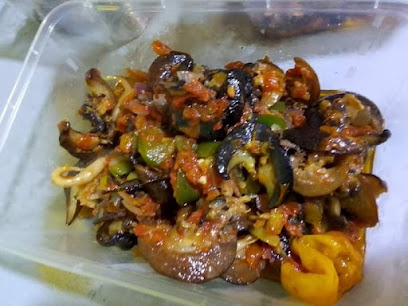
BIA COIN
Experience the vibrant nightlife of Douala at BIA COIN, where local culture meets a lively pub atmosphere for unforgettable evenings.
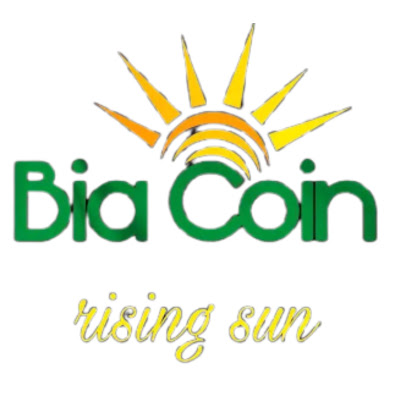
Local Phrases
-
- HelloBongue
[bon-gweh] - GoodbyeAdieu
[ah-dyou] - YesOui
[wee] - NoNon
[non] - Please/You're welcomeS'il vous plaît/De rien
[seel voo pleh/dee ryen] - Thank youMerci
[mehr-see] - Excuse me/SorryExcusez-moi/Désolé
[ehk-skew-zay-mwah/day-zoh-lay] - How are you?Comment ça va?
[kom-moh sah vah] - Fine. And you?Bien. Et toi?
[byen/ay twah] - Do you speak English?Parlez-vous anglais?
[par-lay voo ahn-glay] - I don't understandJe ne comprends pas
[zhuh nuh kohm-prahnd pah]
- HelloBongue
-
- I'd like to see the menu, pleaseJe voudrais voir le menu, s'il vous plaît
[zhuh voo-dray vwahr luh meh-nyoo, seel voo pleh] - I don't eat meatJe ne mange pas de viande
[zhuh nuh mahnj pah duh vyand] - Cheers!Santé!
[sahn-tay] - I would like to pay, pleaseJe voudrais payer, s'il vous plaît
[zhuh voo-dray pay-yay, seel voo pleh]
- I'd like to see the menu, pleaseJe voudrais voir le menu, s'il vous plaît
-
- Help!Au secours!
[oh seh-koor] - Go away!Allez-vous en!
[ah-lay voo zahn] - Call the Police!Appelez la police!
[ah-peh-lay lah poh-lees] - Call a doctor!Appelez un médecin!
[ah-peh-lay uh may-deh-sahn] - I'm lostJe suis perdu
[zhuh swee pair-doo] - I'm illJe suis malade
[zhuh swee mah-lahd]
- Help!Au secours!
-
- I'd like to buy...Je voudrais acheter...
[zhuh voo-dray ah-shet-ay] - I'm just lookingJe regarde juste
[zhuh ruh-gard zhewst] - How much is it?Combien ça coûte?
[kohm-byen sah koot] - That's too expensiveC'est trop cher
[say troh shair] - Can you lower the price?Pouvez-vous baisser le prix?
[poo-veh voo beh-say luh pree]
- I'd like to buy...Je voudrais acheter...
-
- What time is it?Quelle heure est-il?
[kehl uhr ay eel] - It's one o'clockIl est une heure
[eel ay oon uhr] - Half past (10)Dix et demie
[dees ay duh-mee] - MorningMatin
[mah-tahn] - AfternoonAprès-midi
[ah-pray mee-dee] - EveningSoir
[swahr] - YesterdayHier
[yehr] - TodayAujourd'hui
[oh-zhoor-dwee] - TomorrowDemain
[duh-mahn] - 1Un
[uhn] - 2Deux
[duh] - 3Trois
[twah] - 4Quatre
[ka-truh] - 5Cinq
[sank] - 6Six
[sees] - 7Sept
[sept] - 8Huit
[wheet] - 9Neuf
[nuhf] - 10Dix
[dees]
- What time is it?Quelle heure est-il?
-
- Where's a/the...?Où est un/le...?
[oo ay oon/luh] - What's the address?Quelle est l'adresse?
[kehl ay lad-rehs] - Can you show me (on the map)?Pouvez-vous me montrer (sur la carte)?
[poo-veh voo muh mohn-tray (soor lah kart)] - When's the next (bus)?Quand est le prochain (bus)?
[kahnd ay luh proh-shay (boos)] - A ticket (to ....)Un billet (pour ...)
[uhn bee-yay (poor)]
- Where's a/the...?Où est un/le...?
History of Bonanjo
-
Bonanjo, a central neighborhood in Douala, was significantly shaped during the colonial era, particularly under German rule from the late 19th century until the outbreak of World War I. The Germans established Douala as a key port city, and Bonanjo served as a commercial hub with the construction of administrative buildings and infrastructure that laid the groundwork for modern Douala. The German influence is still visible in the architecture and urban layout of the area.
-
In the post-World War I period, Bonanjo became a focal point for political movements advocating for independence from colonial rule. The neighborhood was the site of key political gatherings and protests during the 1950s, culminating in Cameroon gaining independence from France in 1960. This shift marked a significant transformation in Bonanjo, as it transitioned from a colonial administrative center to a vibrant center of Cameroonian identity and governance.
-
The late 20th century saw Bonanjo experiencing rapid urbanization and economic growth. Following independence, the neighborhood became the epicenter of commerce and trade in Douala, attracting businesses and investors. The development of modern amenities, hotels, and cultural centers contributed to the area's reputation as a bustling urban environment, reflective of Douala's status as Cameroon’s economic capital.
-
Bonanjo is renowned for its cultural diversity, housing various ethnic groups, including the Douala, Bakoko, and other communities from across Cameroon. This rich tapestry of cultures is celebrated through festivals, local cuisine, and art. The neighborhood is home to numerous galleries, music venues, and cultural institutions that highlight the artistic vibrancy of Douala and the broader Littoral Region.
-
In recent years, Bonanjo has faced challenges such as urban congestion, infrastructural development pressures, and socio-economic disparities. However, community-led initiatives and government programs are focused on sustainable urban development and enhancing public spaces. This resilience reflects the neighborhood's historical significance and ongoing evolution as a pivotal area within Douala.
Bonanjo Essentials
-
Bonanjo is situated in the heart of Douala, making it easily accessible from other neighborhoods. The main entry points include the Douala International Airport, which is around 10 kilometers away. From the airport, you can take a taxi, which is the most convenient option, or use ride-hailing apps like Taxify or Uber. If you are coming from other neighborhoods such as Akwa or Bonapriso, local taxis and motorcycle taxis (bendskin) are readily available and offer quick transport.
-
Bonanjo is relatively small and can be explored on foot for short distances. Taxis are abundant and can be flagged down on the street or booked via mobile apps. Public transport is available through ‘bendskins’ (motorcycle taxis) and shared taxis, which are a cost-effective means to navigate the area. While there are no train services within Bonanjo, it’s advisable to use taxis for convenience and safety.
-
Bonanjo is generally safe during the day, but caution is advised at night. Areas close to the waterfront and in the outskirts may have higher crime rates, including petty theft and robbery. It is best to avoid walking alone after dark and stay in well-lit areas. Always keep an eye on your belongings, especially in crowded places.
-
In case of an emergency, dial 112 for police and medical assistance. It is advisable to have local emergency numbers saved on your phone. The nearest hospital is Laquintinie Hospital, where you can seek medical attention. Always carry a copy of your passport and any important medical information.
-
Fashion: Do wear light, breathable clothing due to the tropical climate, but dress modestly, especially in religious contexts. Avoid overly revealing outfits. Religion: Do show respect by observing local customs, especially when visiting churches. Public Transport: Do be courteous and give up your seat to those in need. Don’t engage in loud conversations. Greetings: Do greet with a firm handshake and a friendly smile. Eating & Drinking: Do try local dishes like Ndole and accept offers of food graciously. Don’t waste food or drink in front of others, as it can be seen as disrespectful.
-
To experience Bonanjo like a local, visit the vibrant markets such as Marché de Bonanjo for fresh produce and traditional crafts. Engage with local vendors, who often share stories about their goods. Try street food from local vendors, such as grilled plantains or suya. Don’t miss the chance to explore the nearby Bonanjo Park, a lovely spot for relaxation. Lastly, consider attending local events or festivals to immerse yourself in the culture.
Nearby Cities to Bonanjo
-
Things To Do in Tiko
-
Things To Do in Buea
-
Things To Do in Limbe
-
Things To Do in Edea
-
Things To Do in Malabo
-
Things To Do in Nkongsamba
-
Things To Do in Kribi
-
Things To Do in Luba
-
Things To Do in Dschang
-
Things To Do in Bafoussam
-
Things To Do in Calabar
-
Things To Do in Mbouda
-
Things To Do in Bafia
-
Things To Do in Mamfe
-
Things To Do in Yaoundé









